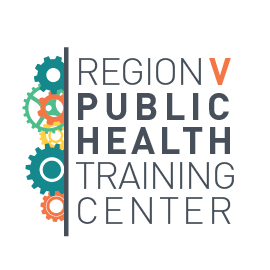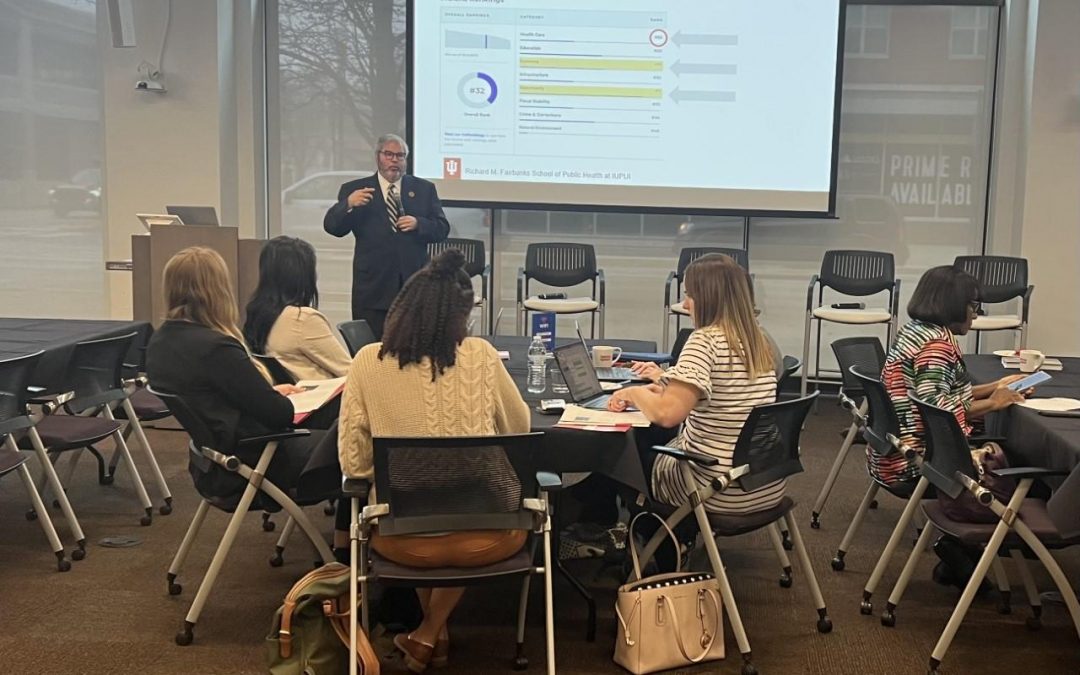By Shandy Dearth, MPH, Richard M. Fairbanks School of Public Health, Indiana University–Purdue University Indianapolis
The Fairbanks School of Public Health (FSPH) has responded to hundreds of media requests pertaining to COVID-19 during the pandemic while also maintaining a close working relationship with many health departments. Several of the staff and faculty are now seen as trusted sources for local journalists and are often the first point of contact for public health-related questions. Sometimes, reporters contact FSPH simply to ask questions about public health topics to gain a better understanding of the consequences of the public health issue from subject matter experts, or simply to bounce ideas off of people working in the field. FSPH understands the need to continually educate the public about what public health does and why we need public health workers. We want to make the idea of public health less obscure so that the concept of public health is easily understandable and identifiable to the general public. This will help with numerous objectives we have in public health:
- Recruit more people into public health
- Encourage public policy that promotes public health
- Encourage sustained funding for public health.
Indiana has consistently ranked among the lowest of all states for per capita public health funding, and there is currently a strategic effort to change that outcome for the state with a bill in the state legislation to increase funding for public health. This funding is connected to core public health services that will improve outcomes for Hoosiers. This bill is just one of many reasons FSPH sees the need to stay connected with journalists. Toward that goal, the Director of the Center for Public Health Practice and the Director of Marketing, Communication, and Recruitment teamed together to create a Public Health and Media Fellowship series.
This five-part series offered a two-hour in-person informational segment on Friday mornings, hosted at a centrally located community meeting space in Indianapolis. The content was chosen based on a focus group composed of journalists who have communicated with FSPH in the past. The topics included:
- Public health system challenges
- The cost of care
- Public health legislation in Indiana
- An infectious disease overview
- How to find public health data.
Presenters and panelists included local health officials, national public health experts, state legislators, public health lobbyists, and health care professionals. More than 600 journalists were invited to participate; fifteen enrolled. By the end of the series, the reporters had already produced five articles related to the content shared in the series. Participant feedback has been positive overall from the participants. One reporter suggested partnering with a Midwest journalism association to host a two-day public health conference in the future and FSPH is excited to explore this possibility. Media can be a strong partner as we promote the benefits of strengthening public health. We encourage other public health practitioners to forge solid working relationships with their local journalists. FSPH is encouraged by the outcomes of this series and will plan to offer additional public health outreach to journalists.
To learn more, check out these resources:
- “Fairbanks School launches fellowship for journalists” article
- Communications in Public Health podcast episode
- Cooperative Communication course
- Effective Communications course

